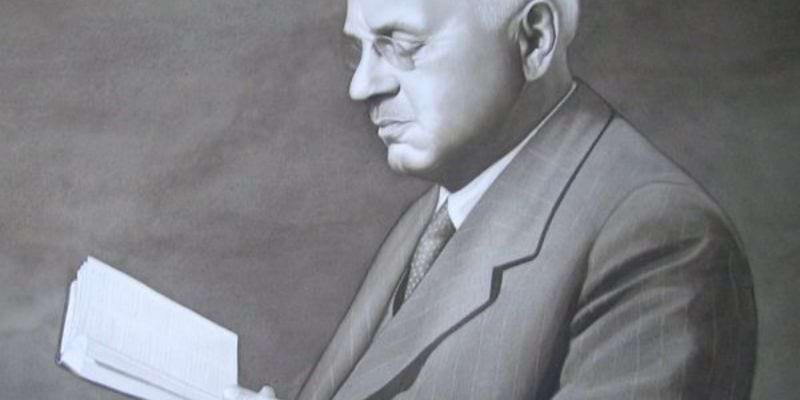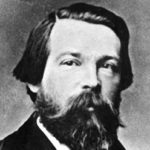Alfred Adler biografie, quotes en boeken

Alfred Adler (7 februari 1870 – 28 mei 1937) was een Oostenrijkse psycholoog, psychiater, arts en grondlegger van de individuele psychologie, ook wel Adleriaanse psychologie genoemd. Tevens wordt dr. Alfred Adler, naast Sigmund Freud en Carl Jung, als de derde stamvader beschouwd van de psychoanalyse. Hij introduceerde de term ‘minderwaardigheidsgevoel’ en was een pionier in zijn aandacht voor het gemeenschapsleven en de sociale aard van de mens.
Biografie
Dr. Alfred Adler werd op 7 februari 1870 net buiten Wenen geboren. Hij was de derde van zeven kinderen van Hongaars-Joodse ouders.
Als jong kind was hij veel ziek. Hij kreeg rachitis en overleed bijna aan longontsteking toen hij 5 jaar oud was. Zijn wens om deze lichamelijke beperkingen te overwinnen, leidde ertoe dat hij later besloot om arts te worden.
In 1895 studeerde hij in geneeskunde af aan de Universiteit van Wenen. Hier had Sigmund Freud ook gestudeerd en zijn latere echtgenote, Raissa Timofeyewna Epstein. Zij was een sociaal-activiste afkomstig uit Rusland die een centraal figuur was in de Oostenrijkse vrouwenbeweging.
Adler begon zijn carrière in eerste instantie als oogarts, maar stapte daarna over naar een huisartsenpraktijk. Hij had een grote interesse in het compenseren van lichamelijke beperkingen. In 1907 publiceerde hij zijn artikel ‘Study of Organ Inferiority and Its Psychical Compensation’, wat de aandacht trok van Sigmund Freud en tot een ontmoeting leidde.
Bijdrage aan de psychologie
Samen met Rudolf Reiler en Wilhelm Stekel begonnen Freud en Adler elkaar wekelijks te ontmoeten tijdens hun ‘Wednesday Night Meetings’, wat het begin was van de psychoanalytische beweging. Adler werd de eerste president van de Weense Psychoanalytische Vereniging, welke ze samen hadden gevormd.
Niet veel later ontwikkelde Adler zijn eigen denkbeelden en geleidelijk aan werden de verschillen in ideeën tussen Adler en Freud onverenigbaar.
Samen met een groep volgelingen verbrak Adler in 1911 de banden met Freud en de Freudiaanse psychoanalyse en verdiepte zijn eigen denkrichting, de Individualpsychologie.
Individual Psychology
In 1912 richtte Adler de Society of Individual Psychology op. De individuele psychologie, of Adleriaanse psychologie, benadrukt de menselijke behoefte en het vermogen om positieve sociale verandering en impact te creëren. Adler pleitte voor een holistische kijk op het individu en voor sociale gelijkheid.
Waar Freud de nadruk legde op een verdeelde persoonlijkheid, waarbij een innerlijke strijd kan plaatsvinden tussen verschillende delen binnen het individu, legt de individuele psychologie de nadruk op het ondeelbare en de eenheid van iedere persoon.
Alfred legde tevens de nadruk op de patiënt in relatie tot de totale omgeving en ziet de mens als sociaal wezen. De behoefte van de individu om ‘erbij te horen’ wordt door Adler het Gemeinschaftsgefühl genoemd. Voor hem was het sociale en gemeenschapsdomein even belangrijk als het domein van het individu.
Adler geloofde tevens dat de mens ertoe in staat was om de eigen persoonlijkheid te ontwikkelen, waarvoor hij het begrip ‘het creatieve zelf’ gebruikte. In dit proces wordt gestreefd naar perfectie of volledigheid, door Adler ‘superioriteit’ genoemd. Hierbij kunnen gevoelens van inferioriteit leiden tot minderwaardigheidsgevoelens.
Dit kan in het ene uiterste leiden tot een overweldigend minderwaardigheidscomplex en aan het andere uiterste tot overcompensatie in de vorm van egocentrisch en zelf-verheerlijkend gedrag ten koste van anderen.
Een Adleriaanse psychotherapeut kan een patiënt helpen zich bewust te worden van deze minderwaardigheidsgevoelens en het gevoel van eigenwaarde helpen op te bouwen. Hierbij worden realistischere doelen, nuttiger gedrag en een sterker sociaal belang door de therapeut aangemoedigd.
Latere leven
Tijdens de Eerste Wereldoorlog diende Alfred Adler als arts in het Oostenrijkse leger.
Daarna specialiseerde hij zich in de kinderpsychiatrie en in 1921 richtte hij zijn eerste kinderbegeleidingskliniek op in Wenen. Dit was de eerste van 30 klinieken in totaal. Daarnaast gaf hij ook lezingen in Europa en in de Verenigde Staten. In 1927 werd hij gastprofessor aan de Universiteit van Columbia.
In de jaren ’30 werd Adler vanwege zijn Joodse herkomst gedwongen om zijn klinieken te sluiten. In 1935 emigreerde hij naar de Verenigde Staten en gaf les aan Long Island College of Medicine in New York.
In 1937 stierf Alfred Adler aan een hartaanval tijdens een lezingentournee in Aberdeen, Schotland. Zijn lichaam werd gecremeerd in Edinburgh, maar pas in 2011 werd zijn as teruggevonden en naar Wenen teruggebracht om te worden begraven.
Alfred Adler quotes
- “Follow your heart but take your brain with you.”
- “No experience is a cause of success or failure. We do not suffer from the shock of our experiences, so-called trauma – but we make out of them just what suits our purposes.”
- “It is easier to fight for one’s principles than to live up to them.”
- “God who is eternally complete, who directs the stars, who is the master of fates, who elevates man from his lowliness to Himself, who speaks from the cosmos to every single human soul, is the most brilliant manifestation of the goal of perfection.”
- “Trust only movement. Life happens at the level of events, not of words. Trust movement.”
- “Death is really a great blessing for humanity, without it there could be no real progress. People who lived for ever would not only hamper and discourage the young, but they would themselves lack sufficient stimulus to be creative.”
- “The only normal people are the ones you don’t know very well.”
- “My difficulties belong to me!”
- “The chief danger in life is that you may take too many precautions.”
- “The truth is often a terrible weapon of aggression. It is possible to lie, and even to murder, with the truth.”
- “The science of the mind can only have for its proper goal the understanding of human nature by every human being, and through its use, brings peace to every human soul.”
- “A lie would have no sense unless the truth were felt as dangerous.”
- “We cannot say that if a child is badly nourished he will become a criminal. We must see what conclusion the child has drawn.”
- “Seeing with the eyes of another, listening with the ears of another, and feeling with the heart of another.”
- “War is organized murder and torture against our brothers.”
- “War is not the continuation of politics with different means, it is the greatest mass-crime perpetrated on the community of man.”
- “To all those who walk the path of human cooperation war must appear loathsome and inhuman.”
- “To be a human being means to possess a feeling of inferiority which constantly presses towards its own conquest. The greater the feeling of inferiority that has been experienced, the more powerful is the urge for conquest and the more violent the emotional agitation.”
- “In the investigation of a neurotic style of life, we must always suspect an opponent, and note who suffers most because of the patient’s condition. Usually this is a member of the family.”
- “A simple rule in dealing with those who are hard to get along with is to remember that this person is striving to assert his superiority; and you must deal with him from that point of view.”
- “Exaggerated sensitiveness is an expression of the feeling of inferiority.”
- “Meanings are not determined by situations, but we determine ourselves by the meanings we give to situations.”
- “We must never neglect the patient’s own use of his symptoms.”
- “We learn in friendship to look with the eyes of another person, to listen with her ears, and to feel with her heart.”
- “The test of one’s behavior pattern is their relationship to society, relationship to work and relationship to sex.”
- “We must interpret a bad temper as a sign of inferiority.”
- “Our modern states are preparing for war without even knowing the future enemy.”
- “Nobody adopts antisocial behavior unless they fear that they will fail if they remain on the social side of life.”
- “Men of genius are admired, men of wealth are envied, men of power are feared; but only men of character are trusted.”
- “There is no such thing as talent. There is pressure.”
- “It is very obvious that we are not influenced by “facts”
but by our interpretation of the facts.” - “No man can think, feel, will, nor even dream, without everything being defined, conditioned, limited, directed by a goal which floats before him.”
- “You can be healed of depression if every day you begin the first thing in the morning to consider how you will bring a real joy to someone else.”
- “Overcoming difficulties leads to courage, self-respect, and knowing yourself.”
- “Life is just the same as learning to swim. Do not be afraid of making mistakes, for there is no other way of learning how to live!”
- “I am grateful for the idea that has used me.”
- “There is a courage of happiness as well as a courage of sorrow.”
“My psychology belongs to everyone.” - “Play is a child’s work and this is not a trivial pursuit.”
- “The goal of the human soul is conquest, perfection, security, superiority.”
- “All failures are so because they lack social interest.”
- “There is only one reason for an individual to side-step to the useless side : the fear of a defeat on the useful side.”
- “It is well known that those who do not trust themselves never trust others.”
Alfred Adler boeken & publicaties
Alfred Adler publiceerde tijdens zijn leven meer dan 300 boeken en artikelen. Hieronder vind je twintig van zijn belangrijkste publicaties.
- 2003. The collected clinical works of Alfred Adler (Vol. 1-16). Routledge.
- 1992. Understanding human nature: The psychology of personality. Hazelden.
- 1964. Superiority and social interest: A collection of later writings. Northwestern University Press.
- 1956. The individual psychology of Alfred Adler: A systematic presentation in selections from his writings. Basic Books.
- 1941. Problems of neurosis: A book of case histories.
- 1940. Man’s nature and his communities. Viking Press.
- 1938. The neurotic disposition: Diagnosis and prognosis.
- 1933. Social interest: A challenge to mankind.
- 1931. What life could mean to you. Capricorn Books.
- 1930. The education of children.
- 1930. The pattern of life.
- 1930. The science of living.
- 1929. Individual psychology. Harper Torchbooks.
- 1927. Understanding human nature. Greenberg.
- 1927. The practice and theory of individual psychology. Harcourt, Brace.
- 1921. On the margin of the future: The “milieu” as a factor in human evolution.
- 1912. The problem of nervousness.
- 1912. The nervous character.
- 1912. The neurotic constitution: Outlines of a comparative individualistic psychology and psychotherapy.
- 1907. Study of organ inferiority and its psychical compensation.
Citatie voor dit artikel:
Baas, S. (2023). Alfred Adler. Retrieved [insert date] from Toolshero: https://www.toolshero.nl/bekende-auteurs/alfred-adler/
Oorspronkelijke publicatiedatum: 06/12/2023 | Laatste update: 06/12/2023
Wilt u linken naar dit artikel, dat kan!
<a href=”https://www.toolshero.nl/bekende-auteurs/alfred-adler/”>Toolshero: Alfred Adler</a>












